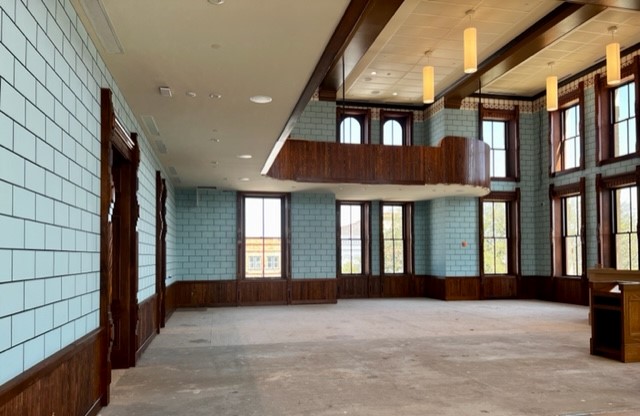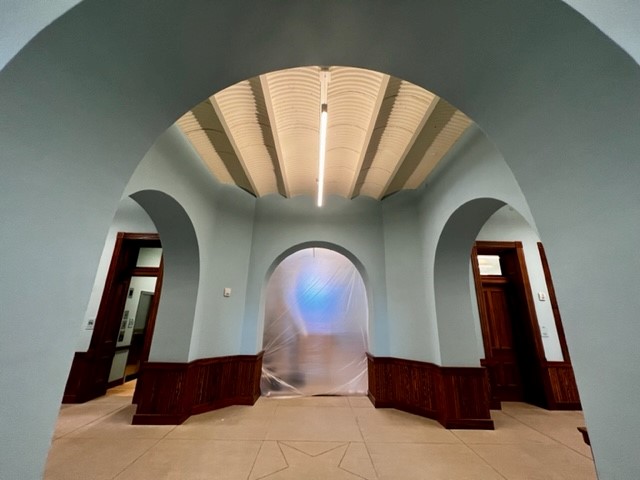Blog | March 23, 2022
Blog: The architect of 15 Texas historic courthouses

The recent restoration of the 134-year-old Fannin County Courthouse is bringing to light the legacy of one of the most prolific courthouse architects in Texas history — Wesley Cark Dodson.
Starting with the McLennan County Courthouse in 1876, Dodson designed 15 courthouses across the state, some of which still exist today, including Fannin County’s, according to an article penned by Dodson’s great-granddaughter Mary Helen Dodson in the North Texas e-News. She describes her relative as a principled man, whose strong sense of civic duty drove his work.
“Wesley remained committed to bringing order and civilization to Texas,” she wrote. “He was building civic pride.”
Dodson, son of a minister, spent his childhood in Tennessee and Alabama, becoming a master carpenter, and designing and constructing homes in Alabama.
He fought for the Confederacy in the Civil War, and he was shot in the hip and leg, according to Mary Helen Dodson. He and his wife moved to Texas after the war and had ultimately settled in Waco when he won the contract to design the McLennan County Courthouse.
“Dodson had seen enough shoddy construction, particularly in counties where he was asked to replace crumbling and unsafe courthouses, to know that the people of Texas needed protection from incompetent and unscrupulous builders,” his great-granddaughter wrote.
He went on to help architects be recognized as serious professionals who needed high standards to be properly licensed. He became a founding member of the Texas State Association of Architects.
Harper’s Magazine and the Waco Daily Examiner lauded him as one of the best architects in the South whose work “rises above the town like a cathedral in a town in France,” the younger Dodson noted in her report.

He also designed six jails, four school buildings and four churches.
Fannin County recently celebrated the rededication of its courthouse after years of reconstruction. County Judge Randy Moore told County magazine last year that builders restored the cupola that had burned in the 1930s. In the interior, archways that had been plastered over are now revealed. The third-floor district attorney’s office has been transformed back into the courtroom balcony. And decades-old gaudy features have been removed.
“People will be proud of it,” Moore said of the courthouse.


